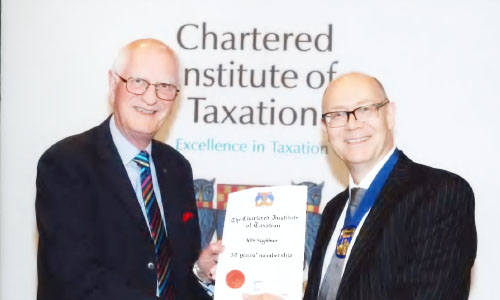HB Accountants are proud to announce that our Tax Guru and Director John Neighbour is celebrating 50 years in Tax with The Chartered Institute of Taxation (CIOT) – we are wondering if there is has been a miscalculation… surely John can’t be a day over 50 himself!
What a fantastic achievement, congratulations John.

#taxguru #CIOT #celebrating #hbaccountants #hbahoddesdon #hoddesdon #notyourusualaccountants
If you would like any help with your personal or business tax, accounts, payroll or have any other questions, feel free to call Team HB on 01992 444466 or email directors@hbaccountants.co.uk – we will be happy to help.

